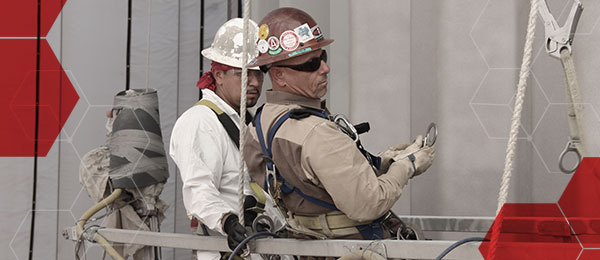-
Course Code
AMPP-003

(CIP) Coating Inspector Program - Level 1
- Classroom instruction is comprised of lectures, group exercises, case studies and hands-on practical labs. Students will also participate in real-life inspection projects that are designed to apply course concepts to the job site by focusing on inspection procedures and proper instrument use, situation problem solving, inaccurate specifications and strengthening the relationship between the inspector and other team members.
- CIP Level 1 focuses on advanced inspection techniques and specialized application methods for both steel and non-steel substrates, including concrete using both non-destructive and destructive techniques. Surface preparation, coating types, inspection criteria, lab testing, and failure modes for various coatings, including specialized coatings and linings are also covered.
- Completing the Coating Inspector Program (CIP) Level 1 Course is the first step to earning the Basic Coatings Inspector Certification. The CIP Level 1 Course provides entry-level knowledge of coating materials, techniques for surface preparation and application, and inspection testing and documentation.
- After successfully obtaining your Basic Coatings Inspector certification, you will be able to perform basic coating inspections on steel substrates using nondestructive testing and instrumentation.
Learning Outcomes
- Recognize how corrosion forms and the role protective coatings play in preventing corrosion
- Describe the role of the inspector as it applies to responsibilities, authority, safety, ethics, communication, and decision-making
- Differentiate surface preparation equipment, methods, and standards for solvent cleaning, hand/power tool cleaning, wet/dry abrasive blasting, and waterjetting
- Identify quality control issues, recognizing design and fabrication defects and coating failure modes
- Compare and contrast different generic coating types, modes of protection and curing mechanisms
- Differentiate coating application by type, including brush, roller, airless, conventional, and plural component spray
- Utilize job specifications, safety/product data sheets and a variety of inspection report documentation including NCRs, daily reports and inspection test plans
- Perform non-destructive inspection procedures for environmental conditions, visible/nonvisible contaminants, surface profile, film thickness, and holiday detection under the supervision of a qualified inspector
- Comply with the AMPP Coating Inspector Code of Conduct
Course Contents
- Corrosion fundamentals such as properties of a coating, coating classification and modes of protection
- Coating types and curing mechanisms
- Coating specifications including service environments and coating life cycle
- Surface preparation equipment, methods and standards for abrasive blasting, solvent cleaning and power and manual tool cleaning
- Use of protective coatings to control corrosion
- Coating application by brush, roller, mitt, and conventional and airless spray
- Role and responsibilities of the inspector including safety, ethics, and conflict prevention and decision making
- Inspection procedures and quality control
- Purpose and content of a pre-job conference
- Test instruments for measurement of environmental or ambient conditions
- Non-destructive test instruments
- Testing for non-visible contaminants
- Quality control issues, recognizing design and fabrication defects and coating failure modes
- Material safety data sheets (MSDS) and product technical data sheets
- Purpose and content of log book and report documentation
- Advanced corrosion theory
- Environmental controls and advanced environmental testing
- Centrifugal blast cleaning and water jetting equipment, standards, methods of use and inspection concerns
- Advanced non-destructive and destructive test instruments
- Surface preparation, application and inspection of liquid-applied and thick barrier linings
- Specialized application equipment including plural-component, electrostatic and centrifugal and hot spray systems
- Concrete coatings
- Specialized coating techniques and application of non-liquid coatings
Our Methodology
- Make coaching and monitoring innovative and using modern
- Media training also using on the go training by using interactive means and focusing on
- The exercises, practical applications and real situations study
- Live delivery method, instructor-led training
- Experienced consultant, trainers, and professional
- Qualified trainer with high-level experience
Attendance Reports
- Send daily attendance reports to training departments
- Send full attendance report to training dep. by the end of the course
- Attend 100 % from the course days also provide daily
- Issue attendance certificate for participant who attend minimum 80% from the course duration
Pre/Post Reports
- Pre- assessment before starting training
- Post assessment after finishing training
- Full report for the difference between Pre-& Post assessment
Who Should Attend
- Project managers, supervisors/foreman and engineers
- Maintenance and quality assurance/control (QA/QC) personnel
- Contractors and specification writers
- Coating manufacturers and technical sales representatives
- Fabricators and welders
- Paint applicators and blasters
